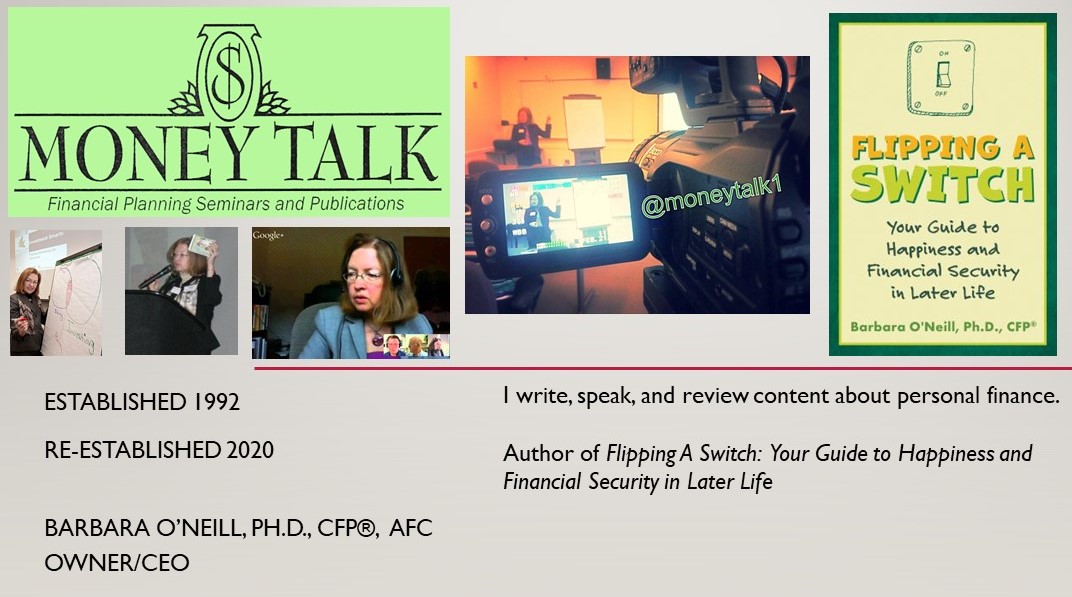Every
quarter, I like to review and summarize my notes from webinars I attended
during the last three months. Below are some interesting tidbits from recent
programs that I attended:
Future
Self Thinking- Many people often think of their “future
self” (who they will be decades in the future) as a stranger. As a result, they
don’t think about the consequences of doing something now because their actions
are affecting another person rather than themselves personally.
Required
Minimum Distributions (RMDs)- Only IRAs and 403(b)
plans (for school and non-profit sector employees) can be aggregated to
calculate RMDs. All other tax-deferred plans, like 401(k)s and the thrift
savings plan (TSP), must have RMDs calculated separately.
Saving
Money on College Expenses- Suggested strategies include going
to community college first, living at home with parents, going to a public
college in your home state, applying for scholarships, buying used textbooks or
renting textbooks, and getting a job at a college.
“Loud
Budgeting”- This is where people (mostly young adults) post videos,
primarily on TikTok, about ways they are reducing expenses and saving money. In
many cases, they are repackaging “tried and true” strategies from the past but
are doing so to appeal to a new generation.
ChatGPT-
This program, developed by Open AI, is the most popular large learning model
(LLM). It is trained on a massive data set of text, pulls information from
multiple sources, and consolidates it to create brand new content in response
to prompts by users.
Financial
Trauma- The textbook definition is any negative experience
that affects how people handle money (e.g., saving and credit). The trauma can
be “little t” (relatively minor) or “Big T” (a major event). Financial advisors
should always remember that people are the expert of their life.
Roth
Conversions- It is best to move money from a pre-tax account
to a Roth account in low-taxable income years, during stock market downturns,
and/or in small increments over time. When you do a Roth conversion, you are
front-loading taxes to avoid taxes at higher rates later.
A
Dollar Too Much- RMDs often push older taxpayers into a
higher marginal tax bracket. Just one extra dollar in income can trigger tax on
Social Security benefits, higher Medicare premiums, and the 3.8% net investment
income tax.
IRMAA
Medicare Surcharge- The income-related monthly adjustment
amount (IRMAA) is an extra amount that high-earning retirees pay for Medicare
coverage. Currently about 7% of retirees pay IRMAA and there are five IRMAA income
thresholds beyond the standard Medicare premium. IRMAA is based on income
earned two years earlier (e.g., 2022 for 2024) and can be avoided by lowering
adjusted gross income or making an appeal to Medicare based on life events.
This post provides
general personal finance or consumer decision-making information and does not
address all the variables that apply to an individual’s unique situation. It does
not endorse specific products or services and should not be construed as legal
or financial advice. If professional assistance is required, the services of a
competent professional should be sought.






No comments:
Post a Comment